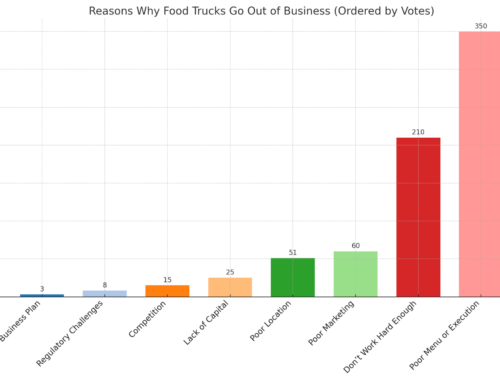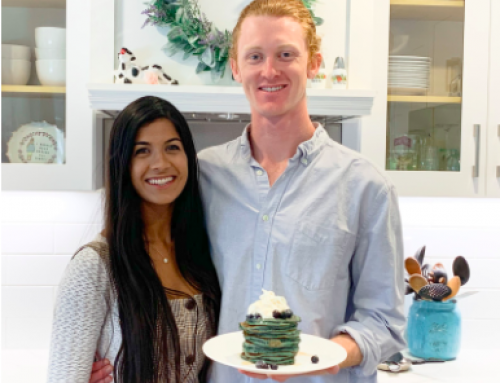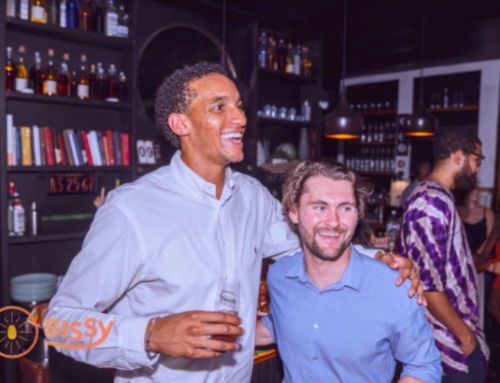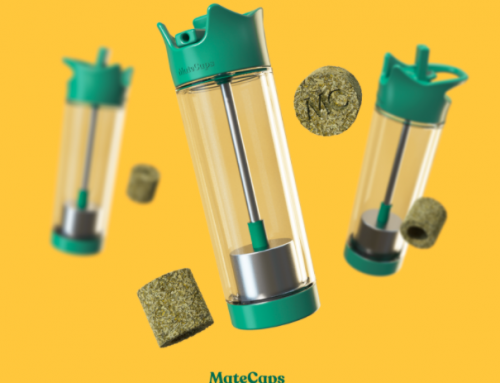Hello! Who are you and what food business did you start?
Our names are Larissa and Fiona and we’re the cofounders of Pod Foods. We’ve created a platform and logistics network for emerging brands to reach grocery stores and other retailers cost effectively.
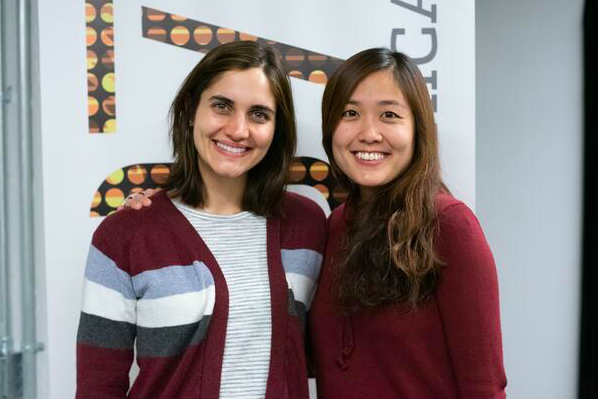
We sell a variety of unique food and beverage products to retailers. Currently, we work with over 150 retailers across Northern California and the midwest, as well as over 500 brands nationwide.
What are your ballpark monthly or annual revenue numbers?
We aren’t sharing these numbers at this time. What we can say is that we are thriving, and have some exciting new city launches on the horizon. We just launched in Chicago and cannot believe how far we’ve come since we launched our company in SF two years ago.
What’s your backstory and how did you come up with the idea?
Back in 2014 we started a cookie company together. It was the first time we met, and we both wanted to create a product that was better for health, humanity and the environment.
We made the “happea-est” cookies on Earth and grew a following through Kickstarter, but when it came time to enter retail, we hit a roadblock of wholesale food distribution and learned about the intricacies of the grocery supply chain.
It quickly became apparent to us that the systems in place were not working in our favor, nor were they benefiting the thousands of other brands out there with similar missions, trying to create products for today’s consumers. So we decided to create an online marketplace and distribution network to address the fact that growing brands had no viable distribution solution.
We didn’t have any expertise in software development, logistics or marketplaces, but we knew our customers extremely well and that has continued to be the focus as we continue to learn and seek the right resources to bring our vision into reality.

First of all, we were our customers, and before we started to build anything we also spent months on discovery, just talking to people and understanding the challenges with either growing a food business or running a grocery store.
We asked what their day to day challenges are, what do they envision their ideal work to be and what would make their day at work better.
We tested our idea with a simple online store and understood all the workflows manually prior to building out V1 of Pod Foods.
We were supporting ourselves with other jobs. Fiona was a community manager in a coworking space, and Larissa was an actress, model and SAT tutor. Even when we raised money, we did not raise enough to pay ourselves, and we spent that money on ways to grow the business.
How did you find the time to start Pod Foods while you both had other jobs?
It’s all a matter of time management and priorities. You have time for whatever you want to do, you just have to make the time. We saw our friends and families a lot less, so it wasn’t always easy.
We didn’t go out much or watch Netflix. We were only able to transition out of a full-time job when we received sufficient funding to be able to pay ourselves.
Take us through the process of testing your idea?
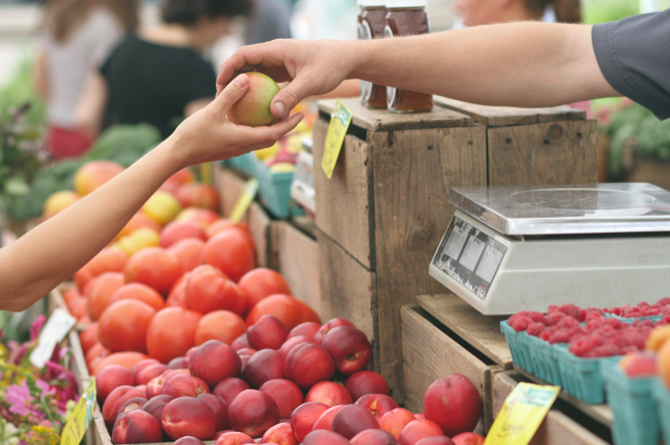
We set up an online store in a day, and on-boarded a bunch of food and beverage manufacturers. We knew a lot of people from having worked on customer discovery for so long, and from having been in the industry.
We asked them if they wanted to collaborate with us to get into more retail stores, and they were eager. We listed their products on the online catalog and took it to retailers to try to understand the value there.
Before we knew it we had people on either side of the marketplace paying to use our prototype. We were able to leverage this to learn what needed to be built into the actual software.
While Larissa developed the business in the United States, Fiona went to Asia to work with our CTO on the first version of the product. Whatever we were doing manually back in San Francisco, we would automate into the interface so that we could handle more volume.
We used Shopify at first. We just walked into a bunch of different grocery stores and started having conversations with buyers to see if they were interested.
Describe the process of launching the business.
We didn’t spend any money on marketing in the beginning, and just focused on sales. We financed the business with a small convertible note from an initial VC, Unshackled Ventures.
It was not a large check, but we just used it to pay rent and survive so that we could focus on the business. We didn’t have money to hire anyone, so we had to find other ways to work with people.
It took a few months before we started seeing a core group of repeat customers. We needed enough supply on the marketplace to generate more demand.
The biggest thing we learned was to listen to our customers, and to listen to any other “advice” with a discerning ear. Most people are just trying to help. But it’s not true that you need to have a cookie cutter background in order to get anywhere in tech… you can have a cookie maker background too.
Since launch, what has worked to attract and retain customers?

Customer success is a big part of our retention strategy. We make sure that all requests and concerns are heard and addressed within 24 hours as much as possible. We take all feedback from our customers seriously and it’s a big part of why we’re able to build our software.
Related Reading: How I Started an Innovative Bottled Water Company
Network/Word of mouth is another strong factor to attract customers. Since we are a business to business platform, we’ve found that the most credible way to pitch to a retailer or a brand is by leveraging on shared connections or the positive experience that a similar company has had using our platform.
Finally, we built a great product that serves the needs of our target customers. We make sure that we’re creating value for everyone and we constantly find new ways to innovate and improve what we offer.
As long as our customers continue to find value, they will continue to use our service.
How are you doing today and what does the future look like?
We started in San Francisco back in 2017 and have since expanded throughout the Bay Area as well as launched in Chicago. In the upcoming quarter, we are preparing to launch in 2 other cities as well.
We constantly look for ways to optimize operational efficiencies as well as shorten our sales cycle. Investing in more targeted marketing strategies such as SEO are next up for us.
Through starting Pod Foods business, what have you learned?

One of the most important things we’ve learnt as founders is to trust our team. We’ve built a strong team of people passionate about the industry and each with their own unique perspectives. This has been incredibly helpful to us as we grow and take on the many challenges that come with introducing a new solution to the industry.
By trusting and empowering each member of the team to lead and make important decisions, we help them to grow as individuals and in turn grow the company as well.
As founders, we have to constantly be fundraising as well. However, it is easy to get sidelined by this time consuming process and neglect the business.
Since there are two of us, we are able to split the attention. One person is fully focused on fundraising while the other concentrates on making sure that the revenue numbers are consistently increasing. This not only allows for a targeted approach, but it is also an important factor in investor confidence.
What Tools Do You Use to Run Your Business?
Slack is extremely important for communication within teams, especially since we have teams in multiple locations nationally and internationally.
Trello is a big tool for us when it comes to product development management. It allows delegation of tasks and we use it to record our engineering specifications as well as any bugs that need to be fixed.
What have been the most influential books or podcasts?
You know, we draw a lot of inspiration from our customers, team, selves, and trusted advisors in the space.
Advice for other food entrepreneurs who want to get started or are just starting out?
Taking the time to build a network of resources is extremely important in the early days especially when there is so much to learn and understand. We have always been aware that we don’t know what we don’t know and so have jumped at any chance to learn from someone more experienced.
We made sure to constantly question even what seemed like common sense. Over time, we are able to understand more and make better judgements on what advice makes sense for us and what doesn’t.

